Iran ready for inclusive cooperation with Lebanon to overcome economic crisis: FM Amir-Abdollahian
Iranian Foreign Minister Hossein Amir-Abdollahian has assured Lebanon of the Islamic Republic’s readiness to improve any kind of cooperation with the sanctions-hit state to help it overcome the ongoing economic crisis.
“While respecting Lebanon’s independence, sovereignty and territorial integrity..., we are ready to have any kind of cooperation with the Lebanese government to overcome the economic crisis,” Amir-Abdollahian said at a press conference at the end of his visit to Beirut on Friday, Fars news agency reported.
“The nations and countries of the region will not allow the US economic war against regional nations to bear fruit and it will not be allowed to achieve success,” he added.
He noted that Iran is ready to boost trade interaction with the Lebanese government to meet people’s requirements for medicine, food and basic commodities.
The top Iranian diplomat also reaffirmed the Islamic Republic’s readiness to continue sending fuel products to Lebanon in the future, and expressed hope that a relevant bilateral agreement can be struck.
Similar to Iran, Lebanon has been under tough American sanctions, which have been designed to pressure the country over the influence wielded in its political and military sectors by the Hezbollah resistance movement. In the 2000s, the movement fought off two major wars on Lebanon that had been waged by the Israeli regime, Washington’s most treasured ally in the region.
The sanctions have taken a huge toll on the Lebanese economy, leading to an acute shortage of staples, including gasoline and diesel.
As the energy crisis escalated in August, Hezbollah intervened and began importing Iranian fuel to prevent Washington from further interfering with the Lebanese people’s livelihoods.
Lebanon’s media outlets last month reported the arrival of a fifth shipment carrying Iranian fuel.
Amir-Abdollahian further said Tehran has technical and engineering capabilities to help Lebanon with its infrastructural projects to improve the Lebanese people’s welfare.
Stressing the importance of resolving all regional problems through cooperation and dialogue, he emphasized that Iran would continue its constructive role in the region in this regard.
Iran, Saudi Arabia held constructive talks, reached agreements
During his presser, the Iranian foreign minister also said Iran and Saudi Arabia have held “constructive” talks so far and that the two countries’ dialogue “is in the right direction."
“We need more talks, and we have so far reached some outcomes and agreements,” Amir-Abdollahian said, adding, “We welcome the continuation of talks and their practical outcomes that will be beneficial to both sides and the region.”
"We did not initiated cutting diplomatic ties with Saudi Arabia. It was a decision made by the Saudi Arabia several years ago,” the top Iranian diplomat emphasized.
He expressed hope that Iran and Saudi Arabia as two important countries in the region, would help the establishment of sustainable security in the region as a result of the negotiations.
Saudi Arabia severed diplomatic relations with Iran in January 2016 after Iranian protesters, enraged by the Saudi execution of prominent Shia cleric Sheikh Nimr al-Nimr, stormed its embassy in Tehran.
For years, the kingdom pursued a confrontational foreign policy toward the Islamic Republic, but it recently appeared to have changed track.
Iraq has hosted several rounds of direct talks between Iranian and Saudi delegations since April with the aim of reviving relations severed five years ago over a host of issues.
We will not let Israel carry out espionage activities in Iran’s neighborhood
Amid reported efforts by Azerbaijan to lean further towards the Israeli regime by hosting Israeli elements, the Iranian foreign minister warned that the Israeli regime’s intelligence activities in the Caucasus republic are not in the interest of the country.
“We will not allow the Zionist regime to carry out espionage activities in our neighborhood,” he said.
Amir-Abdollahian added that the Israeli regime is too weak to be regarded as a threat to Iran.
Iran will return to Vienna talks on JCPOA revival but will not waste time
Elsewhere in his presser, the Iranian foreign minister reiterated the country’s determination to return to the Vienna talks aim to revive the 2015 multilateral nuclear agreement, officially known as the Joint Comprehensive Plan of Action (JCPOA), saying the new government in Tehran is approaching a final conclusion as to when to resume the talks.
It is very important for the Iranian government to hold negotiations that would fully secure people’s rights and interests, he added.
“We will not waste our time in the negotiations. It is important for us to receive [positive] signals from the other side, including the United States, showing the Americans’ firm intention to fully return to their commitments," Amir-Abdollahian pointed out.
He expressed his optimism about the Vienna talks, if the US and the three European signatories to the JCPOA – France, Britain and Germany – act in a way that indicates their will to fully implement their obligations.
He emphasized that the new Iranian government will not tie its plans to achieve sustainable economic development to the Vienna talks.
The US, under former president Donald Trump, unilaterally withdrew from the deal and reinstated crippling sanctions on the Islamic Republic, although the country had been fully compliant with the deal.
In early April, Iran and the remaining parties to the JCPOA began to hold talks in Vienna after the Joe Biden administration voiced willingness to rejoin the nuclear agreement and remove the draconian sanctions his predecessor had slapped on the Islamic Republic.
Since the beginning of the Vienna talks, Tehran has argued that the US—as the first party that violated the JCPOA—needs to take the first step by returning to full compliance with the agreement. Tehran also says it will resume all of its nuclear commitments under the deal only after the US removes all the sanctions in practice.
The negotiations were paused soon after the victory of Ebrahim Raeisi in Iran’s June 18 presidential election.
Heading a delegation, Amir-Abdollahian arrived in Beirut on Thursday on a first visit to the country since his appointment, after wrapping up a trip to Russia.
During his stay in Beirut, he held talks with senior Lebanese officials, including President Michel Aoun, Parliament Speaker Nabih Berri, Foreign Minister Abdallah Bou Habib and Prime Minister Najib Mikati. He also sat down with Hezbollah Secretary General Sayyed Hassan Nasrallah.
President Yoon Suk Yeol to be removed from office
At least 19 Gazans killed by Israeli airstrikes since dawn: Medics
Leader: Iran neither has nor needs proxy forces
US fighter aircraft shot down ‘in friendly fire’ amid aggression on Yemen
Yemeni FM: Israel’s sponsors accountable for ongoing aggression on Sana’a
Eight Palestinians killed as Israel attacks Gaza school, hospitals
VIDEO | Rome, Milan host new protests in solidarity with Palestinians
Dec. 21: ‘Axis of Resistance’ operations against Israeli occupation


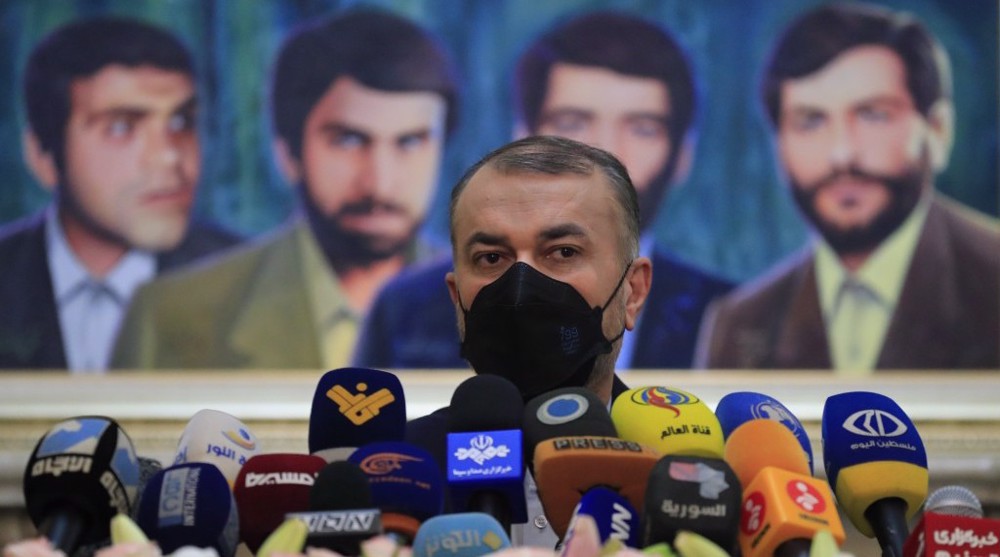
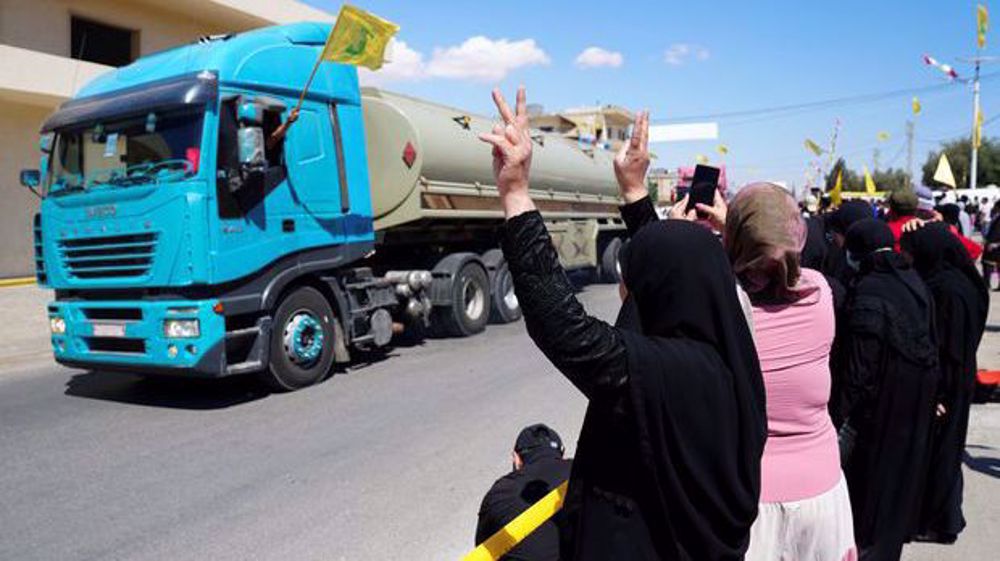
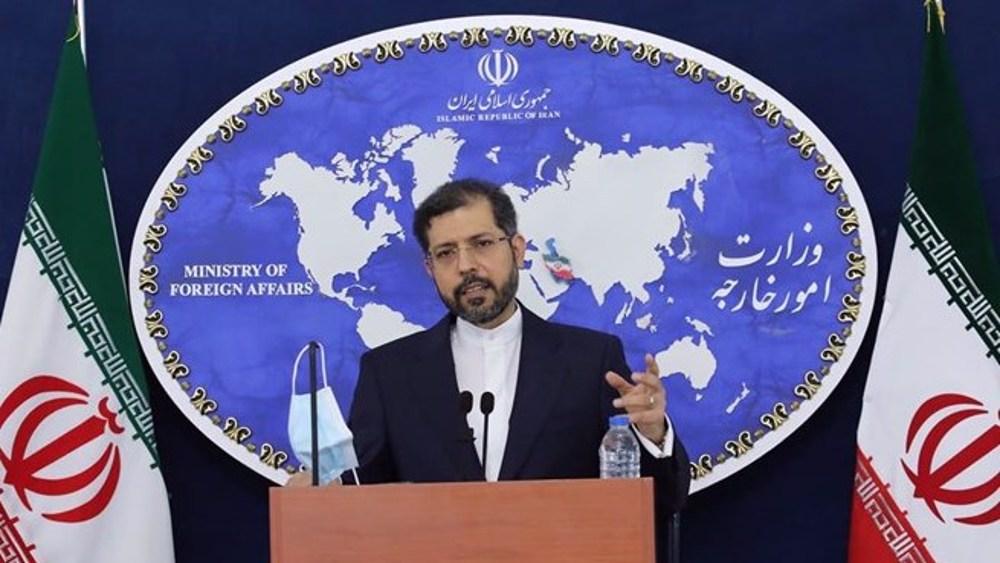
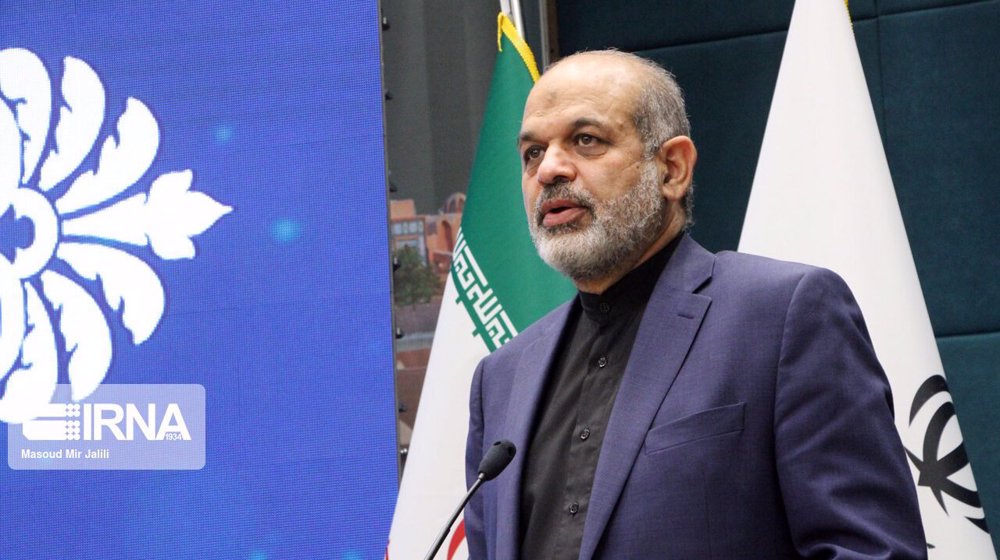
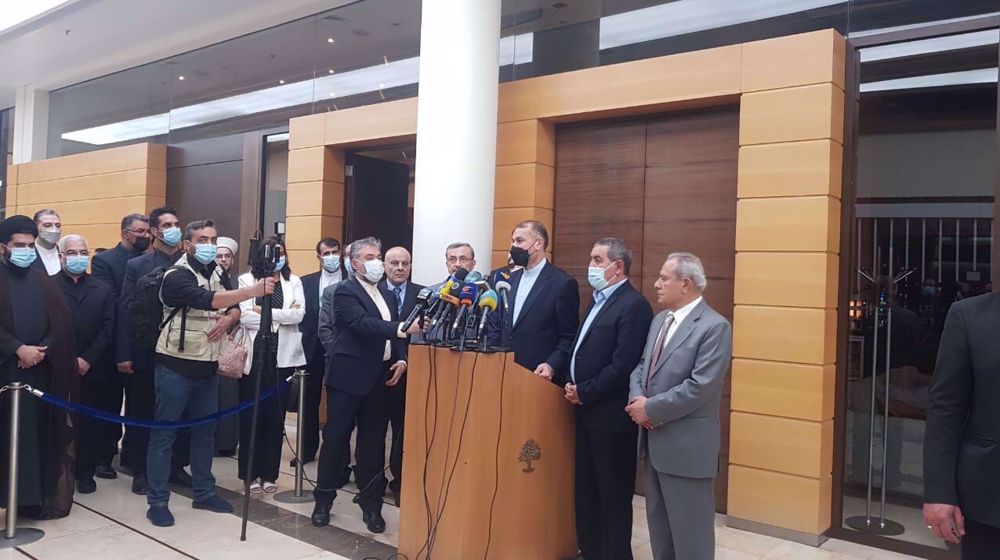


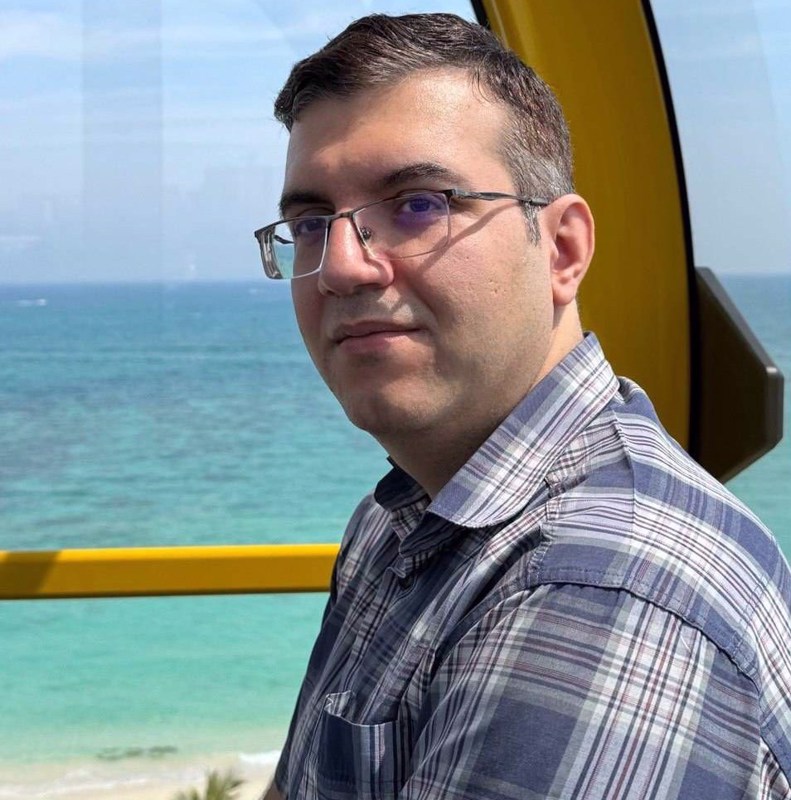




 This makes it easy to access the Press TV website
This makes it easy to access the Press TV website